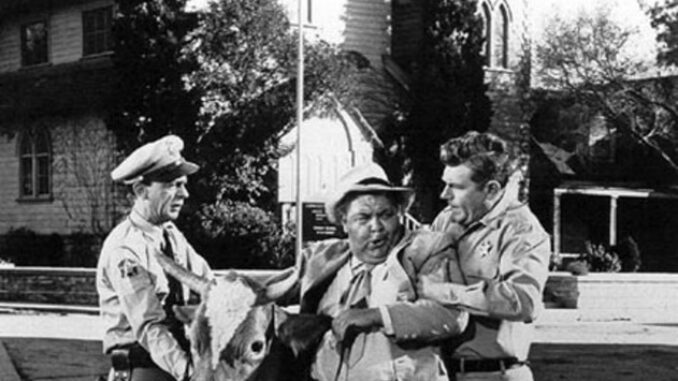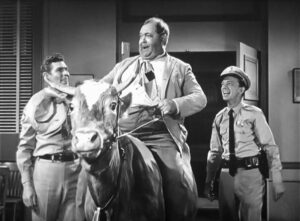
Jack Tudor was the co-worker I couldn’t stand back in my construction days. He was the foreman who craved the loudest laughs for his mediocre jokes, the kind of guy who’d sabotage quality work just so he could tear it down. Jack Tudor was a jerk. And unfortunately, every workplace seems to have its share of these types—people who spread misery like a virus and take pleasure in berating others to lift their own sagging spirits. Even someone as accomplished as Ron Howard wasn’t immune to this kind of toxic environment in Hollywood.
Howard’s journey from child star to acclaimed director is a testament to his resilience and positive outlook. From his early days on The Andy Griffith Show and Happy Days to his work behind the camera on films like The Da Vinci Code, Rush, and How the Grinch Stole Christmas, Howard has built a reputation as a friendly, affable figure in Hollywood. His career, though, hasn’t been without its challenges. Behind his trademark cheerfulness lies a story of early disillusionment, shaped by the harsh realities of the entertainment industry’s commercialism.
His big break almost crushed him. Howard entered Hollywood at the tender age of six, when he landed a role on The Andy Griffith Show. The iconic image of him tossing a stone into the lake at the start of the show’s opening credits became a symbol of the weight he had to carry—a sweet, innocent face masking the harshness of his environment. The set was frequently chaotic, with swearing, smoking, and plenty of drinking, often to the point where many were half-drunk by lunch. At such a young age, Howard found himself overwhelmed and overworked.
That was only the beginning. During his time on The Andy Griffith Show, Howard was a child in an adult’s world, constantly surrounded by dysfunction. His adult co-stars, despite trying to show him kindness, were often too caught up in their own struggles to offer much stability. But it was Happy Days that really opened his eyes to the more direct, and sometimes brutal, impact of Hollywood egos.

In the early years of Happy Days, Howard was the show’s leading star, beloved by fans and peers alike. But that all changed with the arrival of the Fonz, played by Henry Winkler. Fonzie was cooler, edgier, and, more importantly, a money-making phenomenon. Even Howard admitted that Winkler’s performance was “remarkable.” But to the young actor, the shift felt like a personal blow. By the time he was in his early twenties, he began to feel sidelined as the focus of the show shifted to Fonzie. As his role diminished, the studio and network executives—who once treated him with admiration—began to treat him with what can only be described as disrespect.
“When we would go on the road to promote the show, it was all about Fonzie. It was crazy. And I get it—it was exciting. But the way the executives treated me? It was like I wasn’t even there,” Howard recalled on The Graham Norton Show. “They started treating me with a lot of disrespect—not just from a business standpoint, but in the way they interacted with me.” This wasn’t just a matter of shifting priorities—it was a kind of passive-aggressive cruelty, where Howard was treated as expendable, a victim of the industry’s cold calculations.
Rather than let this treatment defeat him, Howard turned it into fuel for his future. “I recognized that the business is tough, and it’s competitive,” he said. “You have to understand it from all angles.” But what truly puzzled him was the unnecessary cruelty. This experience only strengthened his resolve to one day take control of his own projects. He knew that if he ever had the opportunity, he would create an environment where respect, not exploitation, was the priority.
And true to his word, Howard built his career on being the anti-Jack Tudor. Ask any of his co-stars, and they’ll tell you that, even in the cutthroat world of Hollywood, Howard remains one of the most grounded, supportive, and respectful figures in the business. The very same man who was disrespected as a young star is now known for treating others with the kindness and dignity that so many in the industry lack. His perseverance in the face of such adversity is a testament to his character—and a reminder of what happens when someone refuses to become the very thing they despise.
